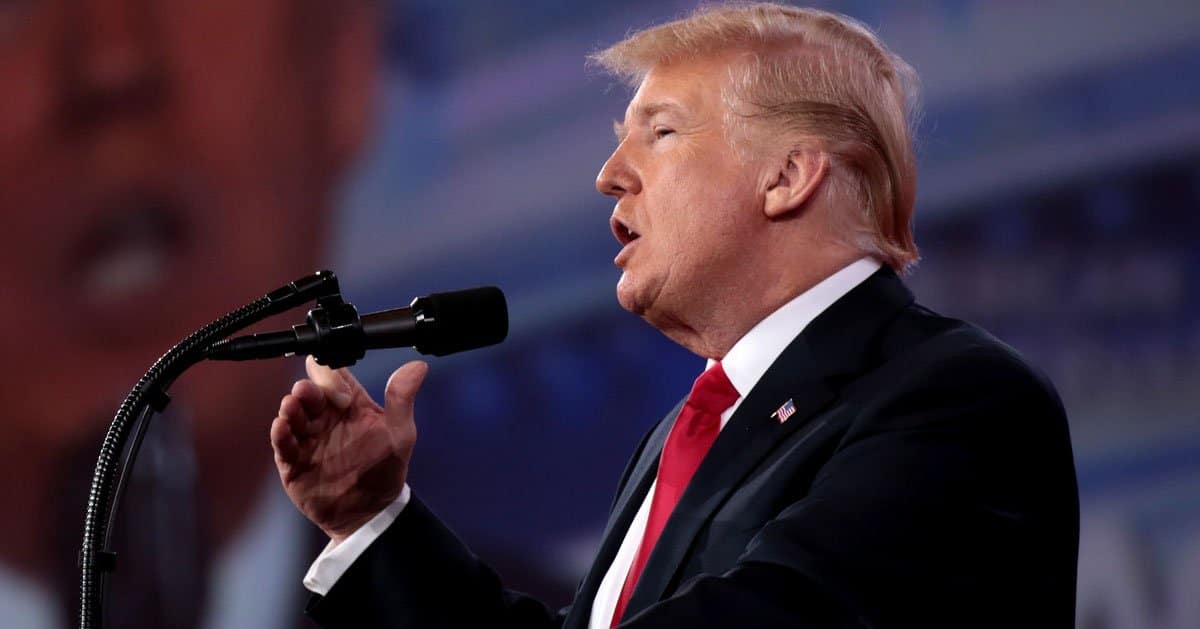






Former House Speaker Nancy Pelosi made headlines during her recent appearance on MSNBC, where she discussed the Democratic Party’s mission to defeat former President Donald Trump.
Fox News reported that Pelosi’s remarks, made during the final day of the Democratic National Convention, included strong comparisons between Trump and historical threats faced by America.
These comments come just over a month after an assassination attempt on Trump, an event that has significantly heightened political tensions across the country.
In her interview with anchor Andrea Mitchell, Pelosi emphasized the importance of the current political climate, comparing the stakes to those faced during the American Revolution and the Civil War.
The former Speaker asserted that the threat posed by Trump to American democracy was unlike anything seen in modern history.
Pelosi’s statements on MSNBC were marked by references to significant moments in American history. She invoked the words of Thomas Paine and Abraham Lincoln to underscore the gravity of the current political landscape.
"The times have found us," Pelosi declared, borrowing from Paine’s revolutionary rhetoric, as she spoke of the Democratic Party’s responsibility to protect democracy.
She went on to draw a parallel between the actions of Lincoln, who fought to keep the nation united during the Civil War, and the current political struggle against Trump. "We have to defeat a person who is a threat to our democracy of the kind that we have not seen," she said, framing Trump as a uniquely dangerous figure in American politics.
Pelosi’s comments were delivered just weeks after an assassination attempt on Trump, an incident that has sparked widespread calls for political de-escalation. President Joe Biden, in a speech on the evening of the attempt, urged Americans to "stand together" and lower the temperature in political discourse, emphasizing that despite differences, "we are not enemies."
This call for unity has been echoed by various political leaders, but Pelosi’s recent remarks have reignited debate over the appropriate tone and rhetoric in American politics. Her comparison of Trump to historical enemies of the United States has been met with both support and criticism, particularly on social media.
Pelosi’s statements quickly attracted criticism from conservative figures and commentators. On the social media platform X, several prominent voices expressed their disapproval of her remarks.
Greg Price, a conservative commentator, pointed out the timing of Pelosi’s comments, noting that it had only been a little over a month since Trump was nearly assassinated. "Pelosi says that defeating President Trump is the equivalent of defeating the British and the Confederacy because he's a ‘threat to democracy of a kind we have not seen,’" Price remarked.
Other conservative voices, including Chris Barron, Eddie Zipper, and Collin Rugg, also weighed in. Barron questioned which side was truly threatening political violence, while Zipper and Rugg accused Pelosi of hypocrisy, citing her past actions within the Democratic Party.
Miranda Devine, a conservative columnist, offered a blunt critique, simply calling Pelosi a "bad woman."
The assassination attempt on Trump and the subsequent political fallout have put the issue of political rhetoric under intense scrutiny.
President Biden’s call for unity was an effort to calm the rising tensions, but Pelosi’s comments have sparked further debate about the boundaries of political discourse.
As the election season progresses, the rhetoric on both sides is likely to continue to be a point of contention. Pelosi’s remarks, while resonating with many within the Democratic Party, have also highlighted the deep divisions that characterize the current political landscape in the United States.
Pelosi’s decision to compare Trump to the British during the American Revolution and the Confederacy during the Civil War has stirred significant controversy.
While her supporters argue that the comparison is fitting given the current political climate, her critics see it as an unnecessary escalation of already heightened tensions.
The timing of her comments, coming so soon after an attempt on Trump’s life, has only added to the controversy. Many conservatives have questioned the wisdom of such rhetoric, especially in a moment when there are calls for de-escalation from both sides of the political aisle.

